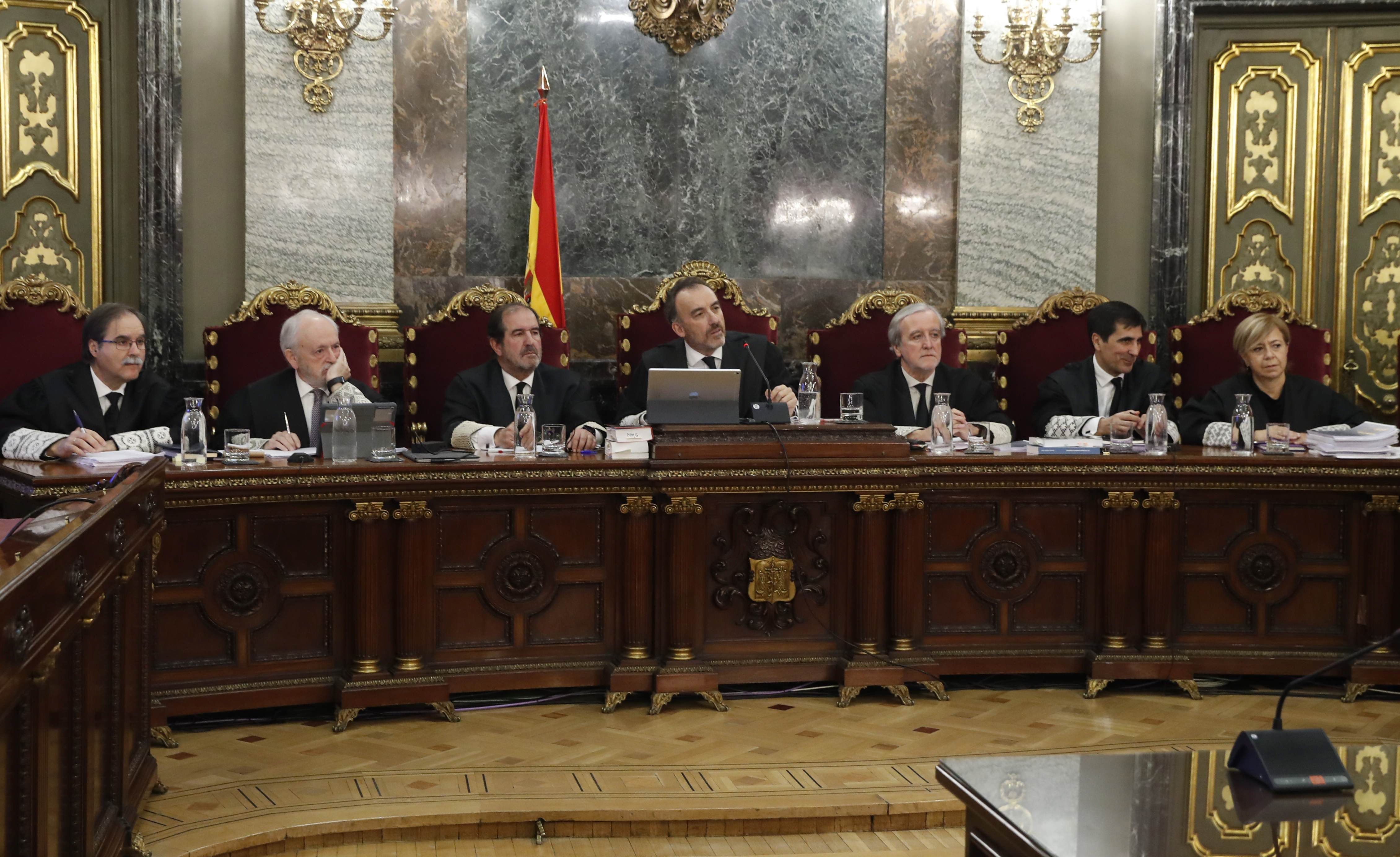The defendants in the Catalan trial present a formal complaint asking the Supreme Court judge not to veto audiovisual material

The lawyers focus their arguments on the fundamental right of defence recognised by the Spanish Constitution and the European Convention on Human Rights
All the defence teams have presented a complaint to the Supreme Court denouncing the obstacles that judge Manuel Marchena is presenting to the lawyers when it comes to reproducing audiovisual material during the trial of the Catalan leaders in Madrid. In this sense, the defences warn that next week, during the appearance at the trial of agents of the Guardia Civil, it will be indispensable to show audiovisual documents when the facts narrated by the police agents contradict the images.
According to the defences, the aim of the video display is always to clarify the facts and uncover the truth. The lawyers focus their arguments on the fundamental right of defence recognised by the Spanish Constitution – which stipulates that all citizens have the right to use the means of evidence that they deem appropriate for their defence – as well as in the rights of the accused according to the European Convention on Human Rights.
The defendants’ lawyers insist that no norm can be established in advance that prevents audiovisual material being exhibited at the Supreme Court, even though the trial is still in the testimony phase. In addition, they invoke a doctrine established in 2007 by the very same courtroom carrying out this trial and signed by judge Marchena himself. The document states that when there is an obvious contradiction between a witness’s account and documentary evidence, the parties have the right to intervene actively to counteract these contradictions.

